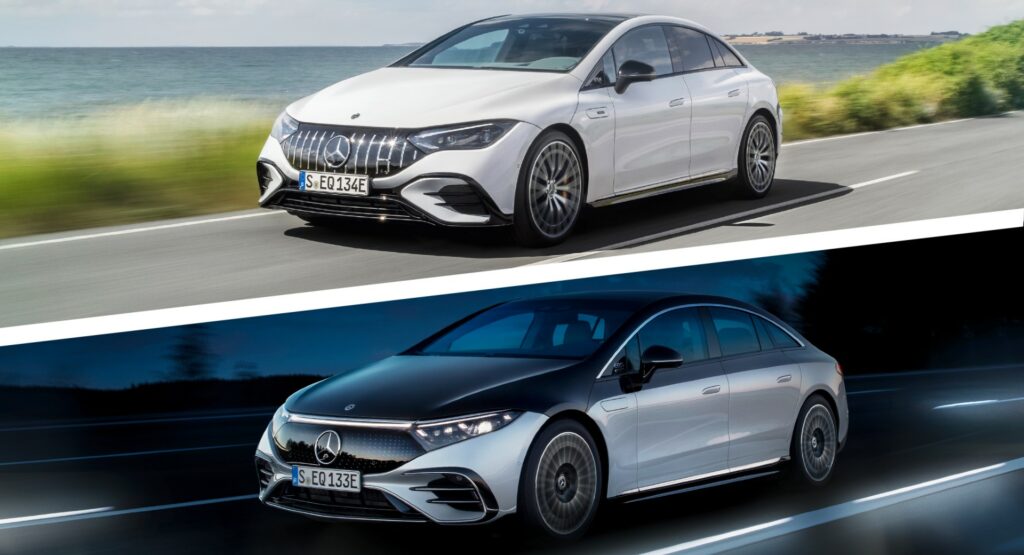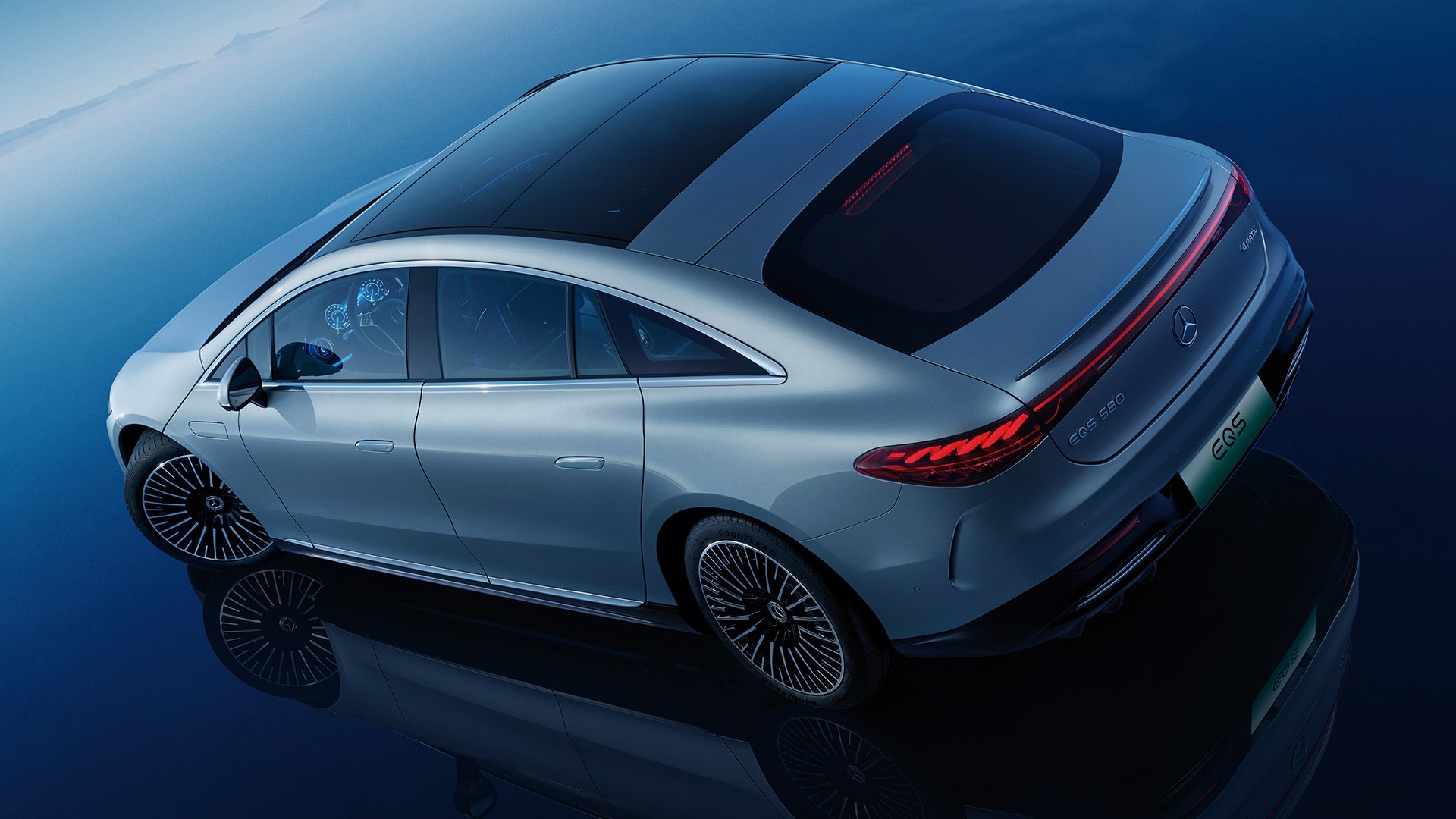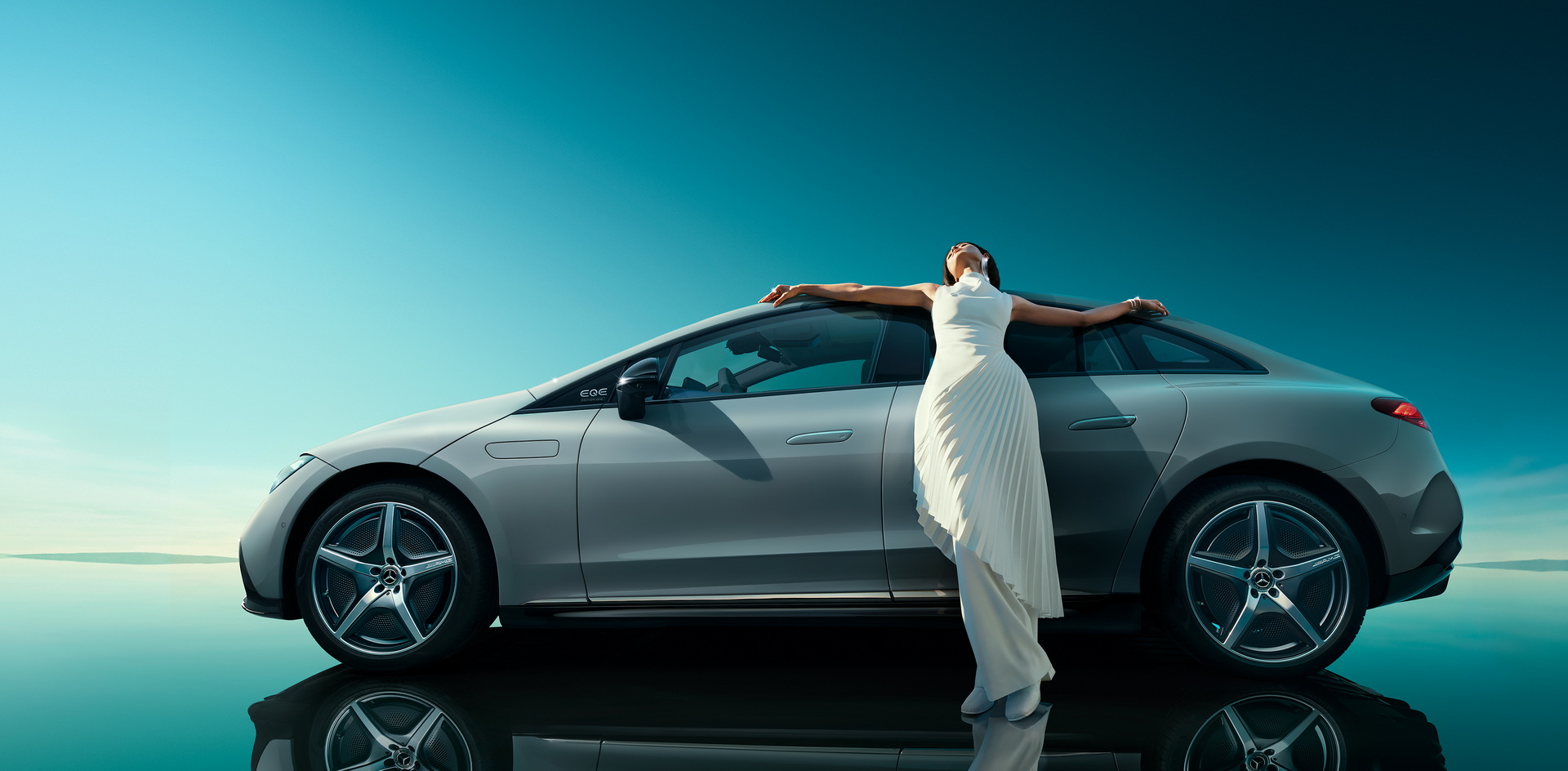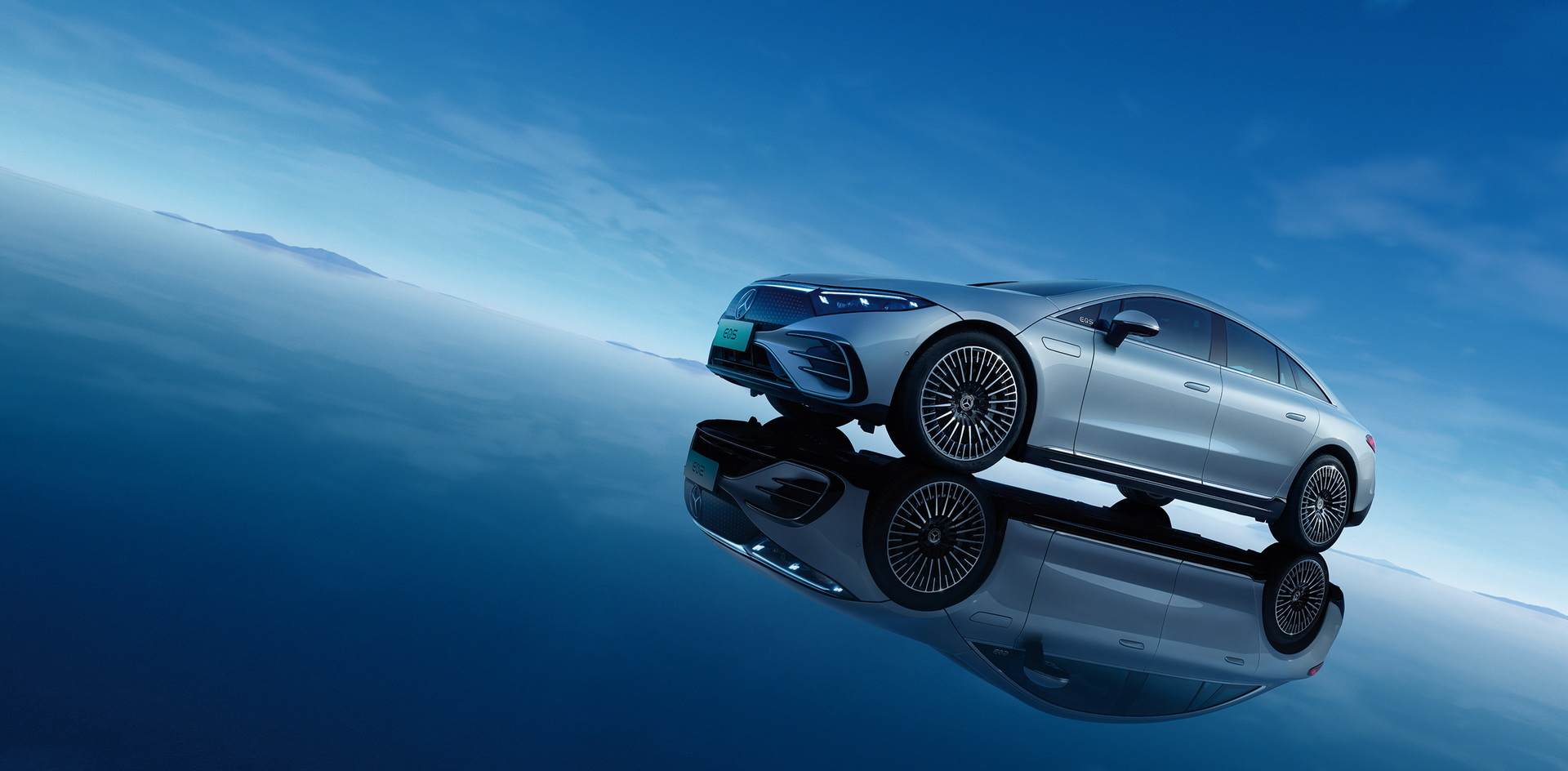In a quest to boost the disappointing sales of its EQ range in China, Mercedes announced price cuts for the EQE and EQS sedans. Foreign automakers are having a hard time competing with Chinese companies which dominate the local EV market.
The Mercedes-Benz EQE is now priced at ¥478,000 ($67,432) after receiving a discount of ¥50,000 ($7,054). The automaker was even more generous with the Mercedes-Benz EQS flagship sedan which now costs ¥956,000 ($134,864), or a full ¥234,000 ($33,011) less than before, dropping below the ¥1-million mark. In order to be fair to its customer base, Mercedes announced it will provide subsidies to those who recently bought one of its electric sedans. Prices for the rest of the EQ range including the smaller EQA, EQB, and EQC SUVs remain unaltered.
Read: Tesla Cuts Vehicle Prices In China Prompting Shares To Slide By As Much As 7%
Bloomberg reports that the price cuts follow a period of slow sales. Specifically for the EQS, the numbers in China are surprisingly low, dropping to as few as 100 deliveries per month in some cases. Part of the problem has to do with the limited headroom for the rear passengers due to the sloping roofline. This is an important factor for Chinese buyers in the premium segment who prefer to be seated at the back.
A Mercedes representative said that the company “continually observes and analyzes dynamic market developments, including the current positioning of other manufacturers in the luxury segment. Based on that, Mercedes-Benz is repositioning certain EQ models in China”.
According to data from the China Automotive Technology and Research Center, Mercedes sold around 8,800 EVs in China between January and July this year. Compared to that, Chinese company BYD sold 220,000 EVs in October alone, although its models are more mainstream than the premium EQ range by Mercedes.
Besides Mercedes-Benz, Tesla also recently announced price cuts in China in order to increase sales and become more competitive against the growing number of local rivals. The numbers suggest that this is getting harder, as 80% of the new EV sales in China during the seven months of 2022 came from domestic automakers.











